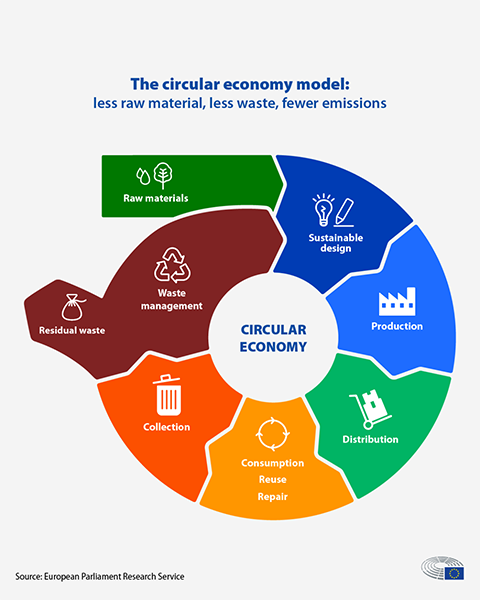The Circle of [Economic] Life
- admin
- July 27, 2025
- No Comments
The importance and role of social media for a sustainable environment
Recycle – Reduce – Refuse – Repair – Recover – Re-gift – Re-share – Repurpose – Regenerate – Refurbish – Re-think … and dare I add the 12th R of waste reduction rules …. Repeat!
I wish we could go back to pre 90’s when “one-time use” and “disposable” items barely existed in the consumer economy, and we considered ourselves eco-friendly and mindful of our environment by default.
In a global society increasingly virtual (not ideal but not necessarily a bad thing either for many reasons), the populist idea that social media has to be demonised at all costs should be redimensioned, put into perspective and seen for its unique qualities: bridging gaps coming from geographical and physical distances, social statuses, language barriers, age differences and time constraints.
What I’ve come to appreciate in the past year or so is the level of interest and participation from thousands of users in social groups promoting recycling initiatives and activities, enticing others in a “give and take” form of expression concerning unwanted goods. I cannot begin to imagine the mountains of waste collected at bring in sites if these communities had not started existing years back. Each and every person making unwanted items available to other persons/families/charities are part of this loop called Circular Economy, extending the life cycle of goods to their maximum limit, and possibly beyond. I see furniture, clothing, building materials, white goods, plants, children’s equipment, car parts … whatever you can imagine being offered on a complimentary basis, not just for good riddance but also for a number of other valid reasons:
1. space – square meters come at a high price and making space in homes and offices is so important via decluttering of items accumulated over the years and no longer holding a functional, aesthetic or sentimental value. On the other hand, there are young home owners and families living in bare homes who would appreciate what for us is not essential or important any more, even more so if we’re downsizing.
2. upgrading – what was good and affordable 10 or 20 years ago may be outdated for a person, but it doesn’t mean it can’t make someone else happy, especially if starting life now.
3. Lack of knowledge – each person has their own appreciation for items, while others might not be knowledgable about historical or material values.
4. No manuality – a broken washing machine or table might be in the hands of an owner who does not have the skills and tools to fix it, whereas a new owner would restore or repair it without any additional costs, for himself or to resell it. This also minimises the use of raw materials, essential to safeguard our natural resources in a sustainable manner and contributing to less harmful emissions.
5. Sense of altruism – especially at a certain age we may realise that possessions may actually be more of a burden than a richness and find a sense of relief, freedom and satisfaction in giving away personal items which are deemed of secondary importance.
Another important role assumed by social media is the area dedicated to second hand sales like Marketplace and Second Hand Sales groups (in Facebook), where all kinds of goods are bought and sold at realistically cheap prices when compared to store-bought. Giving items a second or third life in their life cycle is truly an act of kindness, not just a financial transaction.
These practices have a direct impact on the repair industry which we all know is becoming increasingly costly and illogical. Imagine shifting from consumerism to anti-consumerism, bringing back to life and giving value to small-scale professionals like cobblers, seamstresses, technicians, woodworkers, artists and tradespeople – able to fix shoes, clothes, domestic appliances, furniture, decor and anything under the sun which can be mended, at the right price as opposed to buying new.
Kudos to all those who do not turn a blind eye on the paramount importance of protecting our environment by being ecologically proactive, generous, open-minded and humble enough to rethink the value of all that surrounds us, which ultimately reflects on a collective effort to make prosperous and greener this planet we call HOME.
Written for The Sunday Times of Malta by Alison Casha (Founder at Socialogy™) one of the first marketers with a 20 year strong career and practical experience who believes in social media as one of the most important marketing/customer care channels for any business giving importance to customer satisfaction and real time engagement.
Socialogy™, “The Art of Social Marketing” provides cost-effective and sustainable social media marketing to SME’s and marketing agencies at a European level. Whatever the job, Socialogy™ will always show maximum respect towards our planet.
socialogy.eu
